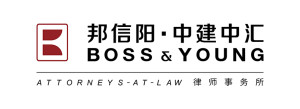PRC companies issue US dollar-denominated bonds (USD bonds) in Hong Kong mostly through direct offering, which is defined as a process whereby a PRC company offers bonds in Hong Kong directly as an issuer. From review by the foreign debt authority of credit rating assignments to registration of foreign exchange funds, direct offering provides for the most streamlined process from a regulatory perspective. However, an issuer must meet the high standards to qualify for direct offering.

WANG ZHIYU
邦信阳中建中汇律师事务所合伙人
Partner
Boss & Young
Key steps for PRC companies issuing USD bonds in Hong Kong:
(1) In order to issue bonds in the Hong Kong market, the prospective issuer is required to obtain an assigned credit rating by S&P, Moody’s or Fitch.
(2) The issuer prepares internal procedural documents, such as resolutions at shareholders’ meetings and board meetings.
(3) The issuer prepares for filing and registration with the National Development and Reform Commission (NDRC). A PRC company that issues bonds in a foreign market through direct or indirect offering, as defined in Circular No. 2044, must complete foreign debt filing and registration procedures with the NDRC prior to the offering, and it must submit information on the issuance to the NDRC within 10 working days of the closing of each issue. The author recommends that the filing procedures require submission to the provincial NDRC office first, which will then transfer the data to the NDRC without review. The review process will be carried out by the NDRC.
(4) Foreign debt contracts must be registered with the State Administration of Foreign Exchange (SAFE). According to the Measures for the Administration of Foreign Debt Registration, a PRC company should complete foreign debt contracts registration procedures with the local SAFE office within 15 working days of it signing any foreign debt contracts (known as a “regulatory model for cross-border financing”). If a PRC company fails to do so within the said time limit, apart from fines and warnings by the SAFE, the company may face sanctions that prohibit repatriation of offering funds into China. In this case, the company will not be able to use the funds for the intended purpose(s) for which they were raised.
(5) Conduct and complete the due diligence process and obtain legal opinions from legal counsels. The legal counsels must conduct due diligence or issue legal opinions as requested by the issuer.
(6) Drafting of transaction documents. The offering circular (OC) is the most important legal document for a bond offering. The underwriters’ foreign counsels draft most of the other transaction documents, including the subscription agreement, keepwell deed, equity interest purchase undertaking (EIPU), trust deed, terms and conditions of bonds (T&C), and agent agreements. Of course, legal counsels also need to issue legal opinions.
(7) Once the aforementioned registration procedures are completed and an acceptable draft OC is available, underwriters of the bonds can launch a global tour of roadshows. The OC will be finalized upon the completion of roadshows and pricing stage. Closing of the bond offering takes place upon signing of related transaction agreements by the issuer and relevant parties.
Role of the legal counsel. During the process of a PRC company preparing to issue USD bonds in Hong Kong, the PRC legal counsel may provide these services:
(1) Participation in design and demonstration of the transaction in accordance with applicable PRC laws and regulations, and to take specific circumstances and requirements of the transaction plan, with reference to any precedent cases, into account;
(2) Highlight any potential filing and registration procedures (if necessary) with competent PRC authorities, based on the finalized bond offering plan;
(3) Conduct legal and due diligence on domestic assets and equity interests involved in the bond offering, and issue legal opinions based on the due diligence findings;
(4) Review and revise any relevant agreements and financing documents for the bond offering, and the drafting of comments on PRC legal issues involving the bond offering documents or making necessary modifications; and
(5) Assist in the review, revision and drafting of sections and contents concerning PRC laws or assets as contained
in the relevant announcements or circulars to be published on the Hong Kong Stock Exchange.
Legal opinions. If requested by the client and other intermediaries, the legal counsel may need to issue legal opinions in relation to (1) due diligence in the PRC, (2) review and approvals related to the offering, (3) content involving PRC legal issues as contained in documents necessary for the offering, and (4) tax considerations of the offering. In this process, the legal counsel may need to have rounds of communication and consultations with other parties before reaching a conclusion. Generally, bond offerings in foreign markets allow room for flexible adjustments based on reasonable considerations and actual situations of target companies, and the requirements on the contents of legal opinions and conclusions.
Bond offering documents. Documents necessary for a foreign bond offering include the subscription agreement; undertakings regarding arrangements to ensure debt repayment, including but not limited to the keepwell deed and equity interest purchase undertaking (EIPU); and the offering and listing documents.
An analysis of relevant case studies reveals that the PRC legal counsel needs to pay special attention to the following matters when reviewing the abovementioned documents. The author recommends checks on the following: (1) reciprocity between rights and obligations of the PRC interested parties, especially where the documents impose obligations that are unnecessary or too demanding for the PRC interested parties; (2) whether provisions relating to the PRC interested parties are viable and enforceable under PRC laws; (3) whether the descriptions and positioning of the roles to be taken by the PRC company, as specified in the transaction documents, conform to applicable stipulations under PRC laws; and (4) the drafting or review of descriptions in the offering announcements concerning PRC equity interests and laws.
These said documents may not be governed by laws of the PRC. However, the PRC legal counsel may assist the client in the review of the documents, in particular, the provisions in the transaction documents regarding obligations and duties of the PRC interested companies, undertakings of the domestic parent company under the keepwell deed, and M&A conditions for triggering the acquisition and takeover process under the EIPU. It is then up to the legal counsel to propose adjustments or call attention to specific issues with the client.
Wang Zhiyu is a partner at Boss & Young
中国上海市黄浦区中山南路100号
金外滩国际广场12-15楼 邮编:200010
12/F-15/F, 100 Bund Square
100 South Zhongshan Road
Huangpu District, Shanghai 200010, China
电话 Tel: +86 21 2316 9090
传真 Fax: +86 21 2316 9000
电子邮箱 E-mail:
wangzhiyu@boss-young.com






















